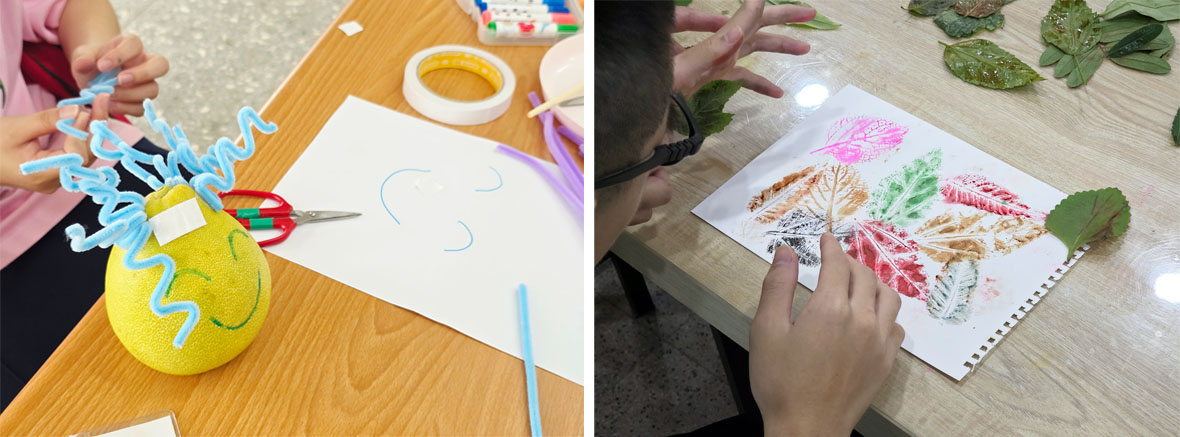▌Goals:
This project aims to assist student with Special Educational Needs through horticultural therapy.
-
- Enhance psychological stability and promote physical and mental well-being.
- Enhance social interaction and self-worth.
- Find peace and strength in nature.
▌Strategies:
- Enhancing the physical function and daily living skills of student with Special Educational Needs:
A. Improving gross and fine motor control through adaptive devices, enabling them to use their limbs more effectively and participate in activities in daily life.
B. Providing tactile, visual, and auditory stimulation to promote sensory integration abilities. - Maintaining sensory perception and cognitive abilities in students with Special Educational Needs.:
A. Horticultural therapy provides opportunities for special needs individuals to connect with nature, connect with plants, activate their five senses, and expand their life experiences.
B. Horticultural therapy can promote memory, attention, and hand-eye coordination; through repetitive activities, it can gradually cultivate the ability to focus on tasks.
C. By experiencing the shapes, colors, smells, textures, and tastes of different plants, it increases memory associations.
D. Learning to understand instructions, through different operations, cultivates problem-solving abilities, and allows individuals to learn new skills or imitate others to complete tasks. - Improving emotional stability for student with Special Educational Needs:
A. Through hands-on gardening activities, experiencing soil, and touching green plants, students with special needs can feel relaxed, reducing stress and anxiety.
B. Using plants as a medium, students with Special Educational Needs can express stress and emotional fluctuations in a gentle and calm way. - Enhancing the ability of student with Special Educational Needs to integrate into society and express themselves:
A. Increasing opportunities for interaction with others through courses, promoting group cooperation through shared goals (such as planting or cooking), creating self-choice and expression, and learning division of labor, mutual assistance, and communication, promoting exchange between groups and strengthening friendships.
B. Increasing the frequency of physical activity, expanding the range of motion, and improving vitality and muscle endurance. - Developing the potential of student with Special Educational Needs and fostering a sense of accomplishment and self-confidence:
A. By caring for plants and seeing them grow and thrive, student with Special Educational Needs can feel their own abilities and build self-confidence.
B. Through activities such as growing fruits and vegetables, harvesting, cooking, and creative crafts, they learn to overcome difficulties and build a sense of accomplishment.
C. Promoting the works completed by student with Special Educational Needs to the public in various forms allows the outside world to understand the talents of student with Special Educational Needs.
▌Implementation:
Hire professional horticultural therapists (certified by the Horticultural Therapy Association) to conduct professional assisted therapy planning.
▌Expected goals and benefits:
- The course can enhance the physical fitness and sensory awareness of student with Special Educational Needs.
- The course can help student with Special Educational Needs develop focus and patience.
▌Progress:
| Application period |
2H20251H2026 |
| Host school | National Nantou Special School
National Yunlin Special School |
| Number of participating students | 20 |
